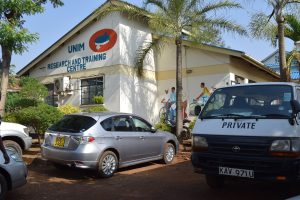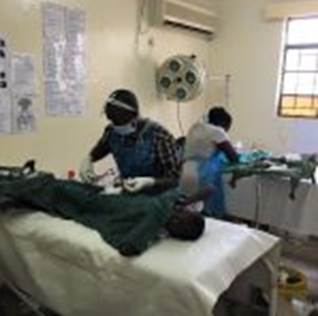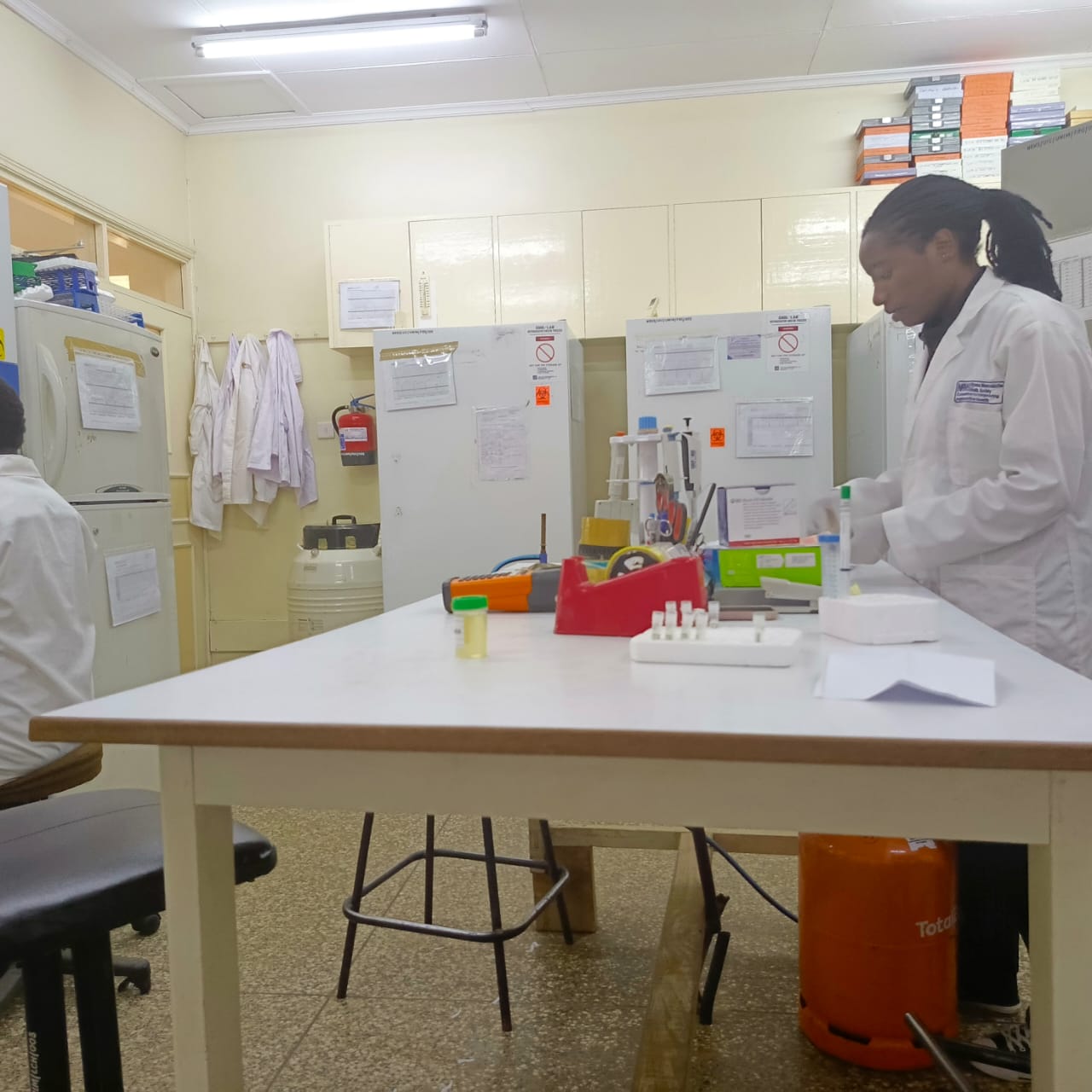UNIM Research Center & Training Center
The UNIM Clinic and Laboratory is located on the grounds of the Lumumba sub–County Hospital, a level 4 general-purpose hospital operated by the Kisumu County Government, providing promotive, rehabilitative, curative and preventive care. It is well known and well regarded throughout Kisumu City and surrounding areas, and attracts clients from a wide catchment area. There is additional storage space in an adjacent converted container. NRHS has eight vehicles to assist with participant and staff transport. This environment has been continually developed and improved over time to meet the needs of the study, so that standards of clinical care and research methodology are followed.
The URTC was built in 2002, with expansions in 2003 and 2007, of approximately 6,400 sq. ft interior space. The site clinical trials pharmacy is a temperature-controlled facility able to store and administer drugs and vaccines and can manage blinded trials and situated close to the 4 clinical and 3 counselling rooms. URTC also has 2 VMMC operation theatres, a post-operative recovery room as well as an admission room for PK/PD intensive studies. To support research, NRHS has Records, Data and IT management rooms as well as a conference hall and additional administrative offices for the director, accounting, stores, HR and procurement. It also has 2 offices for visiting researchers/scholars and clinical trial monitors. Other support services including a central sterile supplies department, laundry, coordination and community room for outreach workers. In addition, there are basic amenities including 3 toilets and 1 kitchen and a standby auto generator power back up. The laboratory, pharmacy and surgical theatres are air conditioned. Eleven desktops are networked within a LAN to three servers – an internal proxy email server that uses ADSL, a back-up server, and a data server. These are all guarded by a Sonic Firewall. Data stored at URTC are automatically downloaded and backed-up nightly. Wireless connection to the server is available throughout the building. There is additional storage space in an adjacent converted container and a distant go-down.
URTC has ~440 sq. ft of laboratory space which undergoes annual certification by the Kenya Medical Laboratory Technicians and Technologists Board. Freezers, incubators, centrifuges, and the safety hood are inspected, serviced, and certified by an outside contractor semi-annually. Major equipment includes a Cepheid TM GeneXpert machine and AmpFire personal station RT-PCR (Atila Biosystems), and ELISA reader/washer/incubator (Biobase), which staff have been trained in and use for other ongoing studies. There is a double CO2 incubator and a laminar flow hood (Re-circulating Class II Microbiology Safety Cabinet). There are two -80 C freezers (one a back-up kept offsite in case of power failure), two -20 C freezers, two refrigerators, two liquid nitrogen tanks, two CO2 tanks, one dry shipper, two centrifuges, minicentrifuge, two vortexers, microscopes, and ample counter space. There is a full range of autoclavable pipettes, which allow measurement of small volumes, a vacuum pump to sterilize liquid media, access to distilled water, and two autoclaves. There are contracts in place for regular supply of liquid nitrogen, dry ice, and disposal of biological specimens. All administrative, laboratory and clinical staff are trained in post-exposure prophylaxis. Fire extinguishers are placed throughout the clinic and an emergency evacuation plan is in place. The laboratory staff are all GCLP certified and all have IATA certification for handling of dangerous goods.




